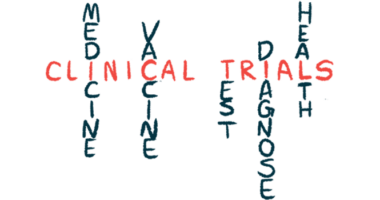Yupelri seen as similar in benefits to Spiriva in Phase 4 COPD trial
Superiority not seen in head-to-head study in adults with severe disease

Yupelri (revefenacin) is not superior to Spiriva (tiotropium) at improving lung function in adults with severe chronic obstructive pulmonary disease (COPD), according to data from a Phase 4 clinical trial.
The head-to-head study, called PIFR-2 (NCT05165485) and sponsored by Yupelri’s co-developers Theravance Biopharma and Mylan (now part of Viatris), showed similar gains in lung function with both treatments. It also confirmed Yupelri’s safety.
“While the primary [goal] in the Phase 4 PIFR-2 study was not met, Yupelri demonstrated an efficacy and safety profile consistent with its performance in other clinical studies,” Rick E. Winningham, CEO of Theravance, said in a company press release.
Both Yupelri and Spiriva are approved bronchodilators for COPD patients
COPD is caused by lung inflammation that blocks the airways, and its hallmark disease symptoms are cough with mucus, wheezing, and shortness of breath.
Yupelri is a bronchodilator, a medication that makes breathing easier by relaxing and widening the airways. Approved in the U.S. as a maintenance COPD therapy, it is administered once daily by inhalation through a standard jet nebulizer, a small machine that turns the medicine into a mist.
Data from several Phase 3 trials supported Yupelri’s U.S. approval in 2018 by demonstrating significant improvements in lung function in people with moderate to severe COPD relative to a placebo.
Spiriva, by Boehringer Ingelheim, is a once-daily bronchodilator approved in the U.S. for the long-term maintenance treatment of COPD-related bronchospasm, or airway tightening, and for reducing COPD exacerbations, or periods of sudden symptom worsening.
It is sold as Spiriva HandiHaler, a dry powder inhaler approved in 2004, or as Spiriva Respimat, an inhalation spray approved in 2014.
The Phase 4 trial — a type of study conducted after a medication has been approved — was a head-to-head safety and efficacy evaluation of Yupelri against Spiriva HandiHaler that opened in 2022.
Trial failed to show significant FEV1 differences with either treatment
PIFR-2 recruited 404 adults, ages 40 and older, with severe to very severe COPD and a suboptimal inspiratory flow rate, a measure of inhalation effort.
Participants were randomly assigned to treatment with either Yupelri or Spiriva HandiHaler, once a day for 12 weeks (about three months).
Its main goal was to show Yupelri’s superiority at improving forced expiratory volume in one second (FEV1), or how much air a person can quickly and forcibly exhale. Secondary goals included changes in other measures of lung function.
No statistically significant difference between Yupelri and Spiriva HandiHaler was seen in terms of changes in FEV1, failing to meet the trial’s primary goal. Patients in either treatment group showed similar lung function improvements, Theravance reported.
In addition, Yupelri’s safety and tolerability profiles were consistent with findings from previous clinical trials.
“We appreciate the growth opportunities that lie ahead for Yupelri, which is an important option for COPD maintenance care, and look forward to sharing additional details from PIFR-2 in the future, following additional data analyses,” Winningham said.







